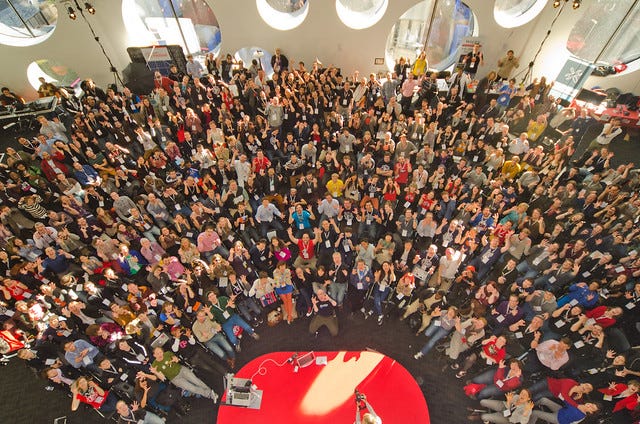I Am Building in Public.
This week’s newsletter is going to be a little different. Actually the next several weeks of newsletters will be different from what you’re used to seeing from me. I appreciate as you’ve followed along while I’ve interviewed professionals, VCs, academics, and entrepreneurs in the EdTech and up-skilling space and shared their stories. However, it’s now time for me to take the next step in this journey.
I'm shifting my focus from discovery to build.
What Does This Mean Exactly?
Last week, I started the OnDeck Fellowship program. For those unfamiliar with OnDeck, it’s Erik Torenberg and team’s attempt to unbundle the traditional university. More specifically, it is where potential founders, and now creators, designers, and investors, go to explore new ideas, be surrounded by like-minded individuals, and learn from those who’ve done it before.
Why OnDeck? Why Now?
When I left my job last summer to build a company whose mission it would be to circumvent long-term unemployment, I knew nothing about adult education, labor dynamics, or the ecosystem around lifelong learning. And although I am far from an expert in this field now, I’ve begun to identify areas where I can create value.
Why Am I Sharing All of This?
Because whatever comes next, I want to share the journey. I want to build this startup in public.
Over the next ten weeks, you won’t see the interviews you've come to expect from this newsletter. Instead, I’ll be sharing my experience of going through the OnDeck Fellowship, and tracking publicly the progress of my goals:
Vet my hypotheses around Education and Work; (More on this below!)
Build an MVP for initial testing and feedback; and
Grow my community of EdTech + Future of Work builders.
I hope you’ll stick around for this journey, give feedback (please and thanks), answer questions, and be one of the early product testers.
Let’s get started 👇
Top of the Funnel.
Problem Statement: White, blue, and pink collar workers, don’t have a way to systematically identify needed skills to remain competitive in their respective fields, often leading to the avoidance of up-skilling or re-training all together. This increases a worker's vulnerability to being replaced by advancements in hardware and/or software over the next decade.
Hypothesis: Creating a common language for skills, and breaking job roles down into required skill sets, will provide the clarity workers need to align with employers on the skills necessary for job transitions and/or career path changes. This will lead to professional growth and unlock greater economic opportunity for the global workforce.
Learning for 1 vs. Many.
Problem Statement: The majority of working adult learners will fail to achieve their upskilling goals via online offerings without program personalization and community accountability.
Hypothesis: Working adults learners would be 50% more willing to sign up for, and twice as successful completing online courses if they are placed into cohorts based on how they learn, followed by what they learn.
Human vs. Hard Skills.
Problem Statement: The majority of knowledge workers don’t have the communication skills (written and oral) necessary to thrive in a decentralized and remote-working world.
Hypothesis: By prioritizing the development of human skills - communication, collaboration, soft leadership, etc in corporate retraining programs, company productivity will increase by 10% and future upskilling programs will be at least five times more subscribed.
I am not sure where the next ten weeks will lead. But I am excited for any ups and downs that will undoubtedly accompany building a startup to help upskill the global workforce.
Thanks for coming along!



